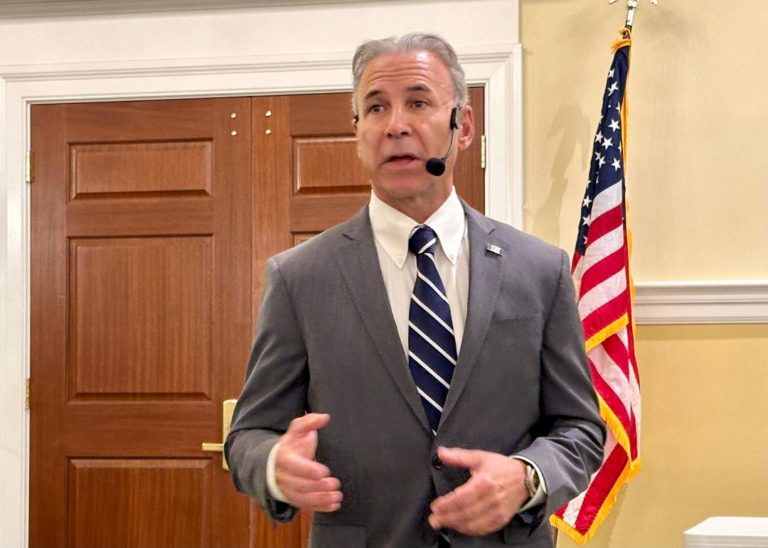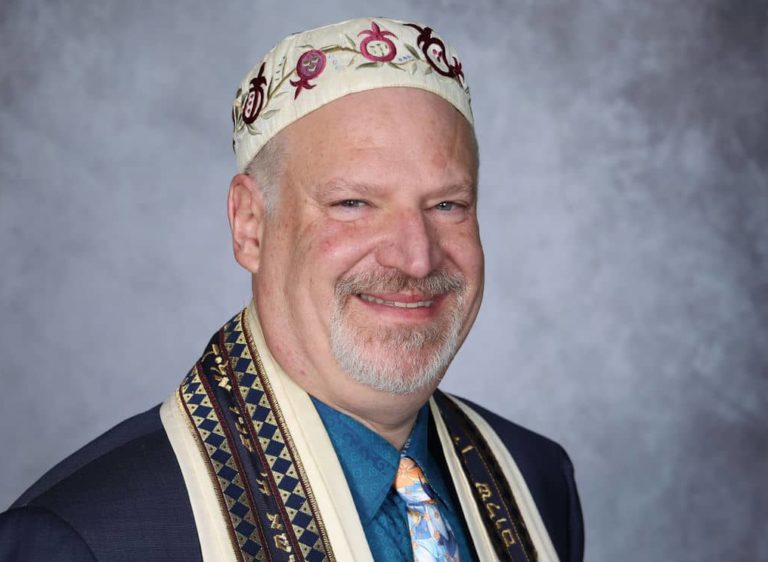
By Drew Williams
Do you ever wonder if there could be grace for you? I have been intrigued recently by the life of Thomas Malcolm Muggeridge (1903–1990). Muggeridge was a brilliant writer, satirist and journalist. He was a British spy for the Allied forces in the Second World War. He was also a womanizer, a hard drinker and an outspoken atheist. He was not a popular public figure and had a reputation for seeking attention and infamy by always holding the outspoken contrary opinion. Of him, Michael Palin wrote, “He was just being Muggeridge, preferring to have a very strong contrary opinion as opposed to none at all.”
At the age of 60, Muggeridge found himself in the slums of Calcutta, so nauseated by the poverty and degradation of the pitiful human life that existed there that he ran back to his five star hotel. The next day he was strangely moved to return to the slums and there he encountered a woman quietly ministering to the people who had caused him to flee. Here is his account of that conversation in those wretched streets: “Do you do this every day?” he began his interview. “Oh, yes,” she replied, “it is my mission. It is how I serve and love my Lord.” “How long have you been doing this? How many months?” “Months?” she said. “Not months, but years. Maybe eighteen years.” “Eighteen years!” exclaimed Muggeridge. “You’ve been working here in these streets for eighteen years?” “Yes,” she said simply and yet joyfully. “It is my privilege to be here. These are my people. These are the ones my Lord has given me to love.” “Do you ever get tired? Do you ever feel like quitting and letting someone else take over your ministry? After all, you are beginning to get older.” “Oh, no,” she replied, “this is where the Lord wants me, and this is where I am happy to be…The Lord is so good to me. How privileged I am to serve him.”
That unknown woman was a nun who the world would come to know as Mother Teresa and Muggeridge’s encounter with her changed him forever. He wrote, “The difference — I ran away, but Mother Teresa crossed the line. She stayed, and healing took place.” He saw that her compassion for others came from a source that eluded him. To his surprise, that source was her faith in Christ and His ability to change the heart of any man, including him.
Another unpopular figure and enemy of the religious establishment who had an appointment with Jesus and was changed forever was a Jewish tax collector named Zacchaeus. Zacchaeus was an especially successful tax collector and, therefore, an exceptionally hated man and excessively rich. And yet, this rich and powerful man took some remarkable actions. In the Gospel of Luke, we read, “And [Zacchaeus] was seeking to see who Jesus was, but on account of the crowd he could not, because he was small in stature. So he ran on ahead and climbed up into a sycamore tree to see him, for he was about to pass that way.” (Luke 19:2-4). To do this, he was clearly willing to risk great indignity. His ability to function as chief tax collector required that people respect his power and comply with his directives. He ran in public — an action which in the ancient tradition was very unseemly. And he climbed the tree — which was unheard of!
So why would he do this? Is it possible that he had heard of Jesus’ teaching? Put yourself in the position of a man who has been ostracized by his community as a tax collector and heard speak of Jesus’ parable of the Pharisee and the tax collector in which the tax collector came out on top! [Luke 18:9-14]. Or had he heard talk of the rich young ruler who came to Jesus asking how he might be saved and went away sadly after learning that he would have to give away his riches? [Luke 18:18-30]. Jesus had told the young man, “How hard it is for those who have riches to enter the kingdom of God!” Those who overheard this exchange asked Jesus, “Then who can be saved?” (verse 26b). Jesus replied, “The things which are impossible with men are possible with God.” (verse 27). Did Zacchaeus hear of these events and think, Might this be possible for me? Is there grace for me? The answer is yes and that grace was already at work.
Why was Malcolm Muggeridge on the streets of Calcutta? And what caused him to go back a second time? The grace of God causes you to seek. And what’s more, the grace that caused Malcolm to take a walk through the streets of Calcutta and Zacchaeus to climb a tree is the same grace that is all the time seeking you and seeking me.
Luke told us, “And when Jesus came to the place, He looked up and said to him, ‘Zacchaeus, hurry and come down, for I must stay at your house today.’ So he hurried and came down and received him joyfully.” (Luke 19:5-6). This is a grace that is personal and intimate, a grace that knows where you are and comes to you. The Psalmist writes of such a knowledge, “For You formed my inward parts; You knitted me together in my mother’s womb.” (Psalm 139:13). This is the grace that calls you by name. God not only knows where you are, He knows who you are. He knows what you’re going through, why you’re going through it and how you feel about it. He knows you better than you know yourself. He sees you — really sees you.Paradoxically, the name Zacchaeus means “pure one.” He was anything but pure. And yet Jesus, calling Zacchaeus by name, he was affirming what he saw in Zacchaeus. This is grace that is fierce in love. It is not passive, but driven — grounded in the fierce love of God. Zacchaeus’ “I must seek him…” became Jesus’ “I must stay at your house…”
This the same grace that always exceeds expectations. Was Zacchaeus expecting he would have a conversation with Jesus? Did he ever imagine that Jesus would know his name? Did he expect Jesus to invite himself to dinner? Was Muggeridge thinking about meeting Jesus? His conversation with a nun on the streets of a slum in India was not what he expected. He did not expect the radical life change that followed.
Finally, to be touched by the grace of God is to be changed — really changed. We read, “And Zacchaeus stood and said to the Lord, ‘Behold, Lord, the half of my goods I give to the poor. And if I have defrauded anyone of anything, I restore it fourfold.’” (Luke 19:8). Jesus asked nothing but hospitality of Zacchaeus, but Zacchaeus volunteered to give half of his wealth to the poor and to make fourfold restitution to anyone whom he had defrauded. This was radically more than was necessary. His actions exceeded Torah requirements, which require restitution plus one-fifth [Leviticus 6:5; Numbers 5:7]. Zacchaeus did not make this offer to win Jesus’ approval, but to show his gratitude. He was not trying to win salvation, but was instead responding to the presence of the Savior. He was, in the words of John the Baptist’s, bearing “fruit worthy of repentance.” [Matthew 3:8]. And that fruit will always be distinguished by a new heart for justice and a radical generosity flowing from the heart of the Father.
Malcolm Muggeridge went on to become a very public Christian spokesperson, his literary and academic gifts redeployed. In 1969 he wrote the bestseller, Jesus Rediscovered. This was followed in 1976 by a second acclaimed book, Jesus: The Man Who Lives. He played a leading role in the Nationwide Festival of Light in 1971 that protested against the commercial exploitation of sex and violence in film, advocating for the rights of women. In 1971 he wrote Something Beautiful for God: Mother Teresa of Calcutta, the book that brought Mother Teresa and the plight of millions to the attention of the world.
In 1969 Muggeridge returned to Calcutta to make a documentary that depicted Mother Teresa’s life. Part of that documentary focused on the home she had established for the dying. He recalled, “[The Missionaries of Charity’s Calcutta] Home for the Dying is dimly lit by small windows high up in the walls, and Ken [Macmillan, the photographer] was adamant that filming was quite impossible in there. We had only one small light with us, and to get the place adequately lighted in the time at our disposal was quite impossible. It was decided that, nonetheless, Ken should have a go, but by way of insurance, he took, as well, some film in an outside courtyard where some of the inmates were sitting in the sun. In the processed film, the part taken inside was bathed in a particularly beautiful soft light, whereas the part taken outside was rather dim and confused…. I myself am absolutely convinced that the technically unaccountable light is, in fact, the Kindly Light of Christ [Cardinal] Newman refers to in his well-known hymn. … [The love in the hospice was] luminous, like the halos artists have seen and made visible around the heads of saints. I find it not at all surprising that the luminosity should register on a photographic film. … I am personally persuaded that we recorded the first authentic photographic miracle.”
How would you know that you had been touched by the grace of God? It would be to recognize that some part of you is seeking, some part of you knows that Someone is seeking you and that in that encounter with God’s grace we are changed. Our lives are touched by His heart for justice and generosity. Muggeridge wrote, “In the end, coming to faith remains for all a sense of homecoming, of picking up the threads of a lost life, of responding to a bell that had long been ringing, of taking a place at a table that had long been vacant.”
The Rev. Drew Williams is senior pastor at Trinity Church in Greenwich.




